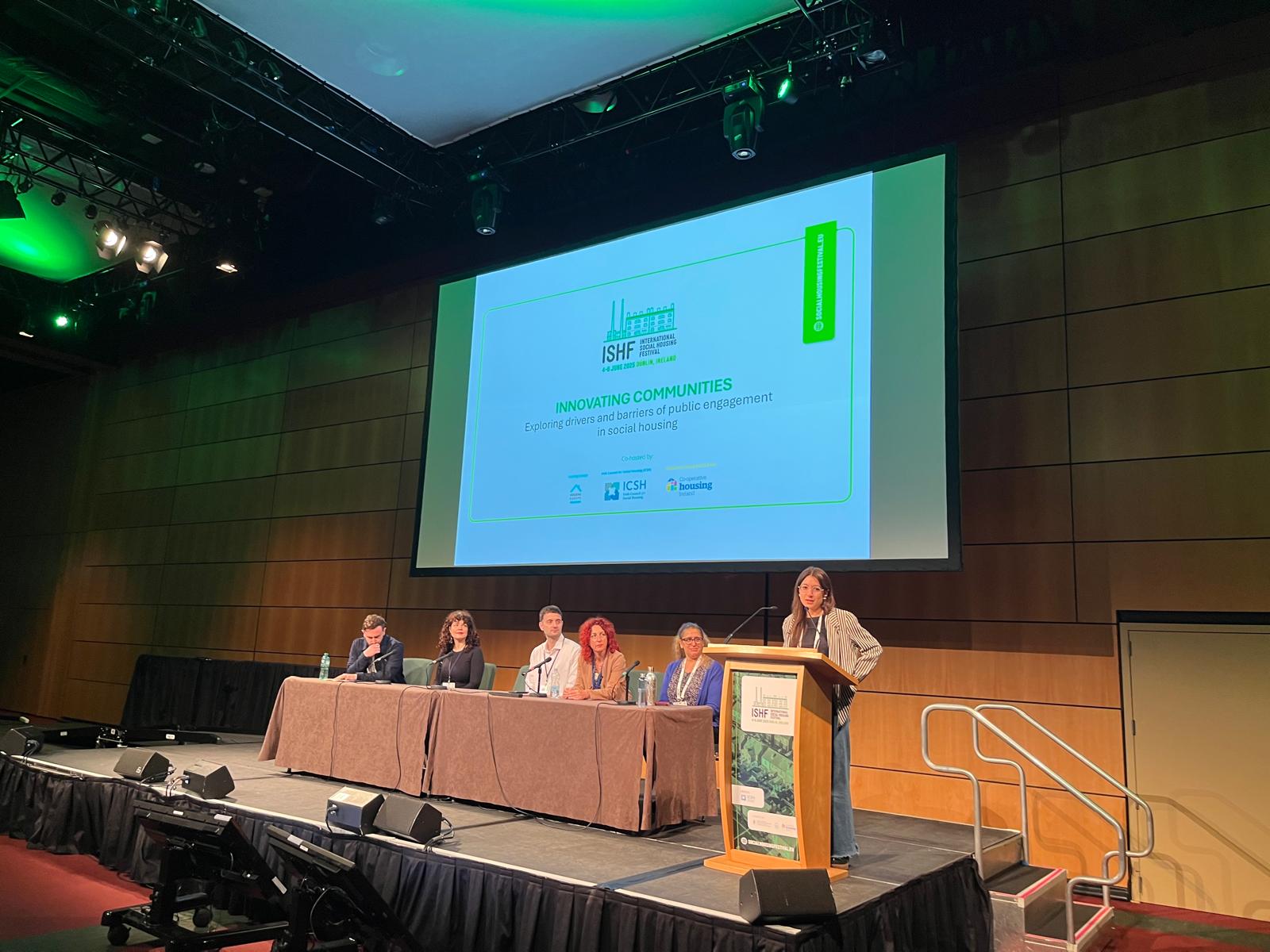Exploring inclusive innovation in social housing: the evolving role of resident engagement
Research -
Reflections from the panel “Innovating Communities: Exploring drivers and barriers of public engagement in social housing,” held during the International Social Housing Festival 2025.
As inequalities deepen and the housing sector faces mounting pressures from climate change and digital transformation, new questions are emerging about the direction and nature of innovation in social housing. While technological progress and institutional planning remain essential, they may not be sufficient on their own. Exploring approaches that incorporate social innovation, foster public engagement, and reflect principles of inclusive governance could offer valuable pathways toward more responsive and equitable housing systems.
The intersection of social innovation, resident participation, and accessible housing appears to be a particularly promising space for experimentation and transformation. It encourages not only technical upgrades or improved service delivery, but also a broader reflection on decision-making processes.
Rethinking participation beyond procedure
Resident engagement is often treated as a formal step in planning, rather than as a meaningful component of innovation. Yet there is growing awareness that participation, to be effective, needs to be more than symbolic.
“Meaningful participation starts with the ability to genuinely listen and recognise the value of local knowledge from the beginning. It’s not an add-on, it should be built into the very structure of how decisions are made”, said Chiara Fonio, Head of Social Innovation at ICONS. “Participation calls for transparent and structured engagement tools that help us understand whether it is truly inclusive and effective”.
When residents are meaningfully involved in shaping decisions, it can support a form of empowerment in which people help define the services, environments, and resources that affect their daily lives. To make this possible, however, engagement needs to be supported by appropriate strategies that ensure transparency, inclusivity, and the ability to track and adapt over time.
Co-creation has the potential to bring local knowledge to the forefront, particularly in the early stages of complex interventions like energy retrofits or digital service platforms. Residents offer lived experience and a deep understanding of their own needs and contexts. Without their input, even technically advanced solutions may face resistance or fail to resonate.
Similarly, the idea of reflexive governance, the capacity to adapt strategies based on feedback and changing realities, has emerged as a key element in long-term planning. Especially in contexts involving socio-technical change, such as the energy transition, responsiveness and iteration are essential qualities. This adaptive capacity is not only technical but deeply social: it depends on trust, continuity, and meaningful dialogue with residents. Engagement should be embedded in long-term, evolving relationships.
Energy innovation and resident engagement: the DEDALUS project case history
DEDALUS project, where ICONS acts as a strategic partner, aims to design, develop, and demonstrate an SSH-driven*, multi-value, energy carrier-agnostic demand response ecosystem.
A case history from the project illustrates the human-centered approach taken by DEDALUS: in two pilot sites the project revealed critical challenges. In one case, residents showed resistance due to a lack of familiarity with energy systems, fears about losing comfort, and concerns over privacy. In the second, in Denmark, even with modern infrastructure in place, low digital literacy made it difficult to use smart devices like thermostats.
To address these issues, the team adopted personalised, context-aware engagement strategies: one-on-one support, simplified interfaces, clearer communication, and reconsideration of automation features. A key insight was that digital nudging alone is insufficient. Residents consistently emphasized the need for clarity, human interaction, and control. The DEDALUS approach has demonstrated that successful energy innovation must be rooted in social sensitivity and an understanding of lived experience.
Resilience and social justice through resident engagement
Positioning resident engagement more centrally in housing strategies may offer a constructive path toward greater resilience and social justice, one that recognises people not only as users of innovation, but as active contributors to its development.
“For participation to be truly meaningful, we need to think practically, about how and why people engage. Recognising incentives, sharing benefits, and designing processes that reflect people’s lived realities are all part of what makes participatory governance work in practice”, added Claudia Crippa, Head of Business Innovation at ICONS.
